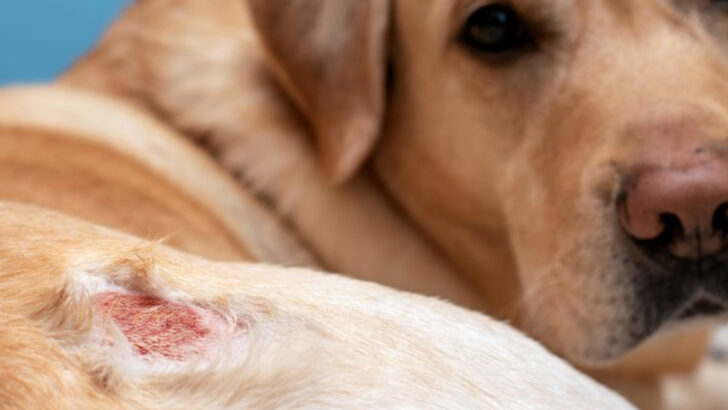Not all dog food is created equal—especially if your pup is allergic to one of the most common ingredients out there: chicken. Yes, the very thing found in countless kibbles, treats, and canned meals could be making your dog miserable.
From constant itching to digestive troubles, chicken allergies in dogs can show up in ways you might not expect. Some symptoms are subtle, while others are impossible to ignore. And the longer they go unaddressed, the worse your dog may feel.
If your furry friend is suffering from mysterious skin issues, upset stomachs, or just seems “off,” their diet could be the culprit. But don’t panic—there are ways to manage and even eliminate these issues entirely.
Let’s break down the key signs of chicken allergies in dogs and, more importantly, what you can do to help your pup feel better, healthier, and happier.
Skin Irritation and Itching
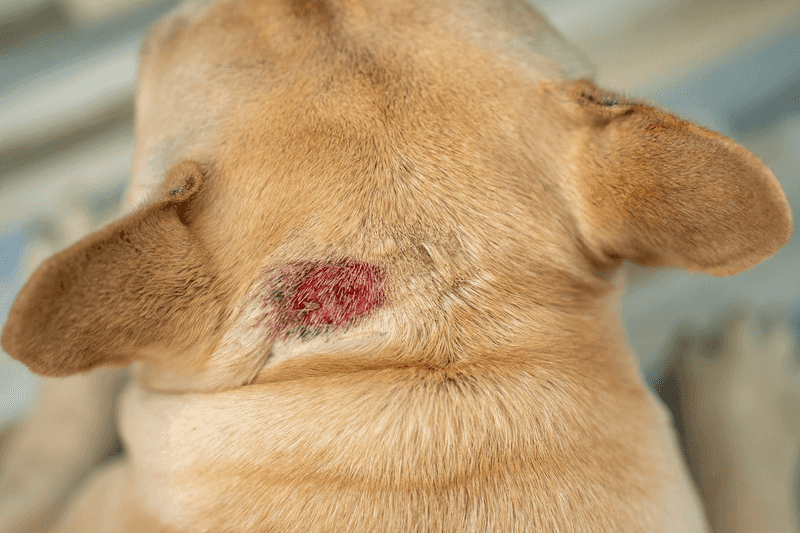
Skin irritation is a common symptom of chicken allergies in dogs. Affected dogs may experience itching, redness, and inflammation, often leading to excessive scratching or licking. Initially, you might notice your dog focusing on specific areas like the paws, belly, or ears.
If left unchecked, this constant scratching can lead to secondary infections. Bathing your dog with hypoallergenic shampoos can provide temporary relief, but it’s crucial to identify and eliminate the allergen from their diet. Consulting with a veterinarian for appropriate allergy testing and treatment options is highly recommended.
Digestive Issues

Chicken allergies can cause digestive upset in dogs, leading to symptoms like vomiting, diarrhea, or flatulence. These issues may arise shortly after eating, causing discomfort and distress.
Switching to a hypoallergenic or novel protein diet can often alleviate these symptoms. It’s essential to monitor your dog’s reaction to different foods and consult a veterinarian to ensure they receive a balanced diet. If digestive issues persist, further testing may be necessary to rule out other underlying conditions that might be affecting your dog’s health.
Ear Infections
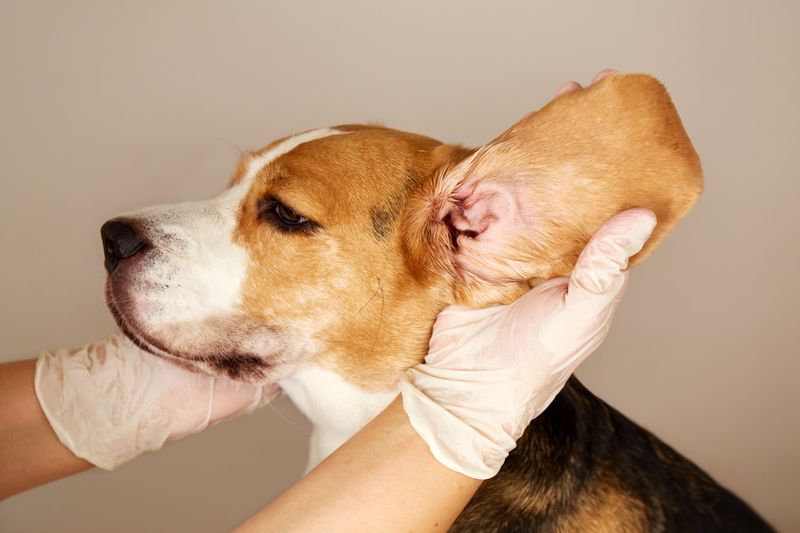
Recurring ear infections can be indicative of a chicken allergy. Dogs with this allergy often experience itchy, red, and swollen ears, sometimes accompanied by a foul odor.
Regularly cleaning your dog’s ears with a vet-approved solution can help manage these symptoms. However, eliminating chicken from their diet is the most effective long-term solution. Persistent ear infections warrant a visit to the vet for proper diagnosis and treatment, which might include antibiotics or antifungal medications.
Paw Licking and Chewing

Paw licking and chewing are tell-tale signs of a chicken allergy in dogs. This behavior is often a response to itchiness or discomfort caused by the allergen.
Over time, this can lead to inflammation, open sores, and even infections. To alleviate these symptoms, keep your dog’s paws clean and dry, and consider using protective booties during walks. Eliminating chicken from their diet and consulting a vet for allergy testing can help identify the exact cause and prevent further issues.
Respiratory Problems
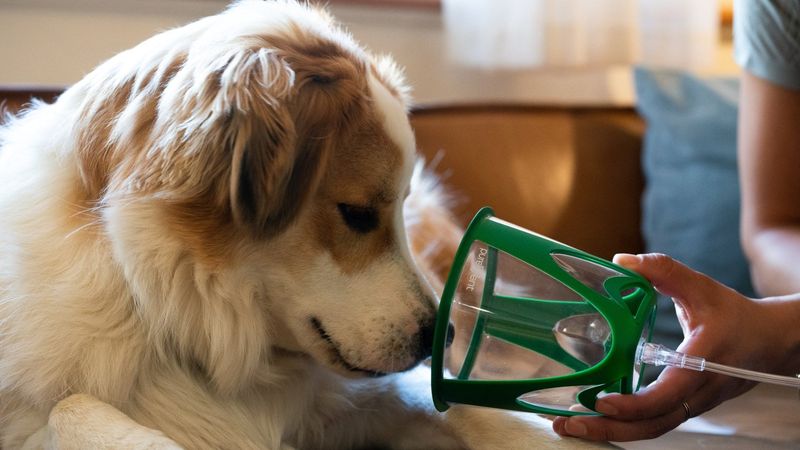
Respiratory issues in dogs, such as coughing, wheezing, or difficulty breathing, can sometimes result from chicken allergies. These symptoms may not be as common but should not be overlooked.
Ensuring your dog has a clean and dust-free environment can help manage mild symptoms. However, if respiratory problems persist, it’s vital to consult a veterinarian to rule out other causes and confirm an allergy diagnosis. Transitioning to an allergen-free diet may significantly improve your dog’s respiratory health and overall quality of life.
Hot Spots
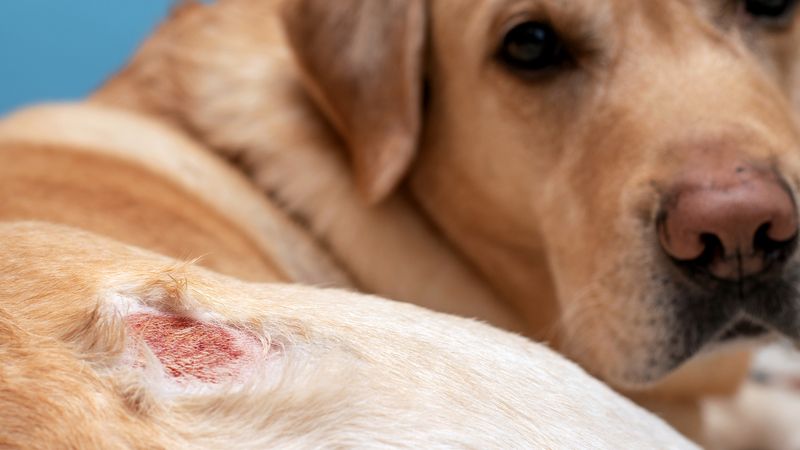
Hot spots, or acute moist dermatitis, are painful, inflamed areas of skin that can develop as a result of chicken allergies. These lesions often occur where your dog licks or scratches excessively.
Prompt treatment is essential to prevent further irritation or infection. Using an anti-inflammatory spray or cream can provide relief, but removing the allergen from your dog’s diet is crucial for long-term management. If hot spots persist, visiting a vet to explore additional treatment options is advisable.
Swollen Face or Hives
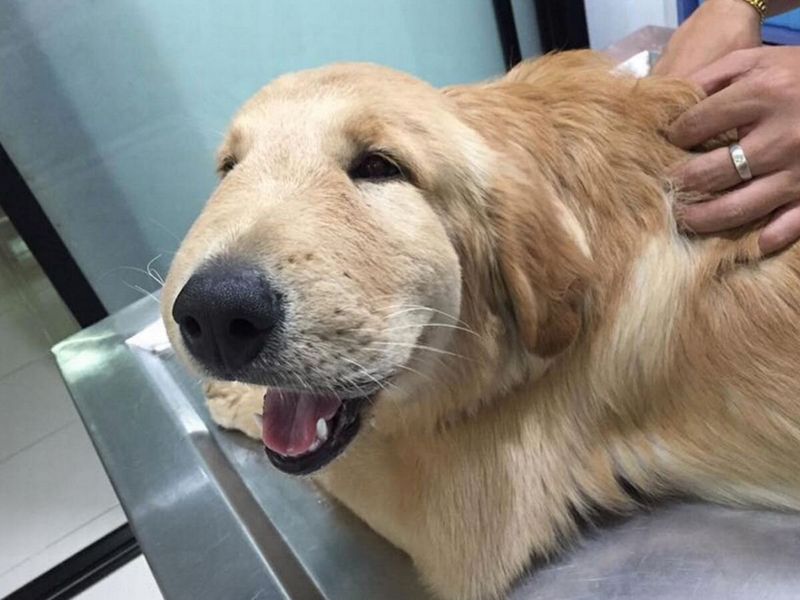
Facial swelling and hives are alarming but clear indicators of a chicken allergy in dogs. These symptoms can appear suddenly and may be accompanied by itchiness or discomfort.
Administering an antihistamine under veterinary guidance can help alleviate these acute symptoms. Removing chicken from your dog’s diet is a necessary step to prevent recurrence. If your dog experiences severe swelling or difficulty breathing, seek immediate veterinary care to address potential anaphylaxis.
Loss of Appetite

Loss of appetite can be a subtle but significant sign of a chicken allergy. Affected dogs may refuse to eat or seem disinterested in food they previously enjoyed.
This could lead to weight loss and nutritional deficiencies if not addressed promptly. Offering a limited ingredient diet or novel protein sources can often revive your dog’s interest in food. Consulting with a veterinarian can help ensure your dog receives adequate nutrition and identify any other potential causes for the change in eating habits.
Lethargy

Lethargy or decreased energy levels can be a symptom of chicken allergies in dogs. Affected dogs may seem less active or reluctant to participate in activities they usually enjoy.
This change in behavior can be distressing for both the pet and owner. Providing a balanced diet free from allergens can help restore your dog’s vitality. It’s important to monitor for any additional symptoms and consult a veterinarian to rule out other health issues that could contribute to lethargy.
Vomiting

Vomiting is a clear sign that something in your dog’s diet may not agree with them. For dogs allergic to chicken, this reaction can occur shortly after ingestion.
Repeated vomiting can lead to dehydration and should be addressed promptly. Switching to a hypoallergenic diet and consulting a veterinarian can help manage this symptom. It’s important to ensure your dog remains hydrated and receives any necessary medical attention to prevent further health complications.
Diarrhea

Diarrhea can be a distressing symptom of chicken allergies in dogs. This condition can lead to dehydration and discomfort if not treated promptly.
Transitioning your dog to a diet free from chicken and other potential allergens can help alleviate this issue. Monitoring your dog’s hydration levels and consulting a veterinarian for tailored advice are important steps in managing this symptom effectively and ensuring your dog’s overall well-being.
Weight Loss

Unexplained weight loss in dogs can indicate a chicken allergy, especially when accompanied by other symptoms. This can result from reduced food intake or improper nutrient absorption.
Addressing the allergy by removing chicken from the diet can help stabilize weight. Monitoring your dog’s weight and consulting a veterinarian for nutritional guidance can ensure your dog maintains a healthy weight and receives the necessary nutrients for their well-being.

